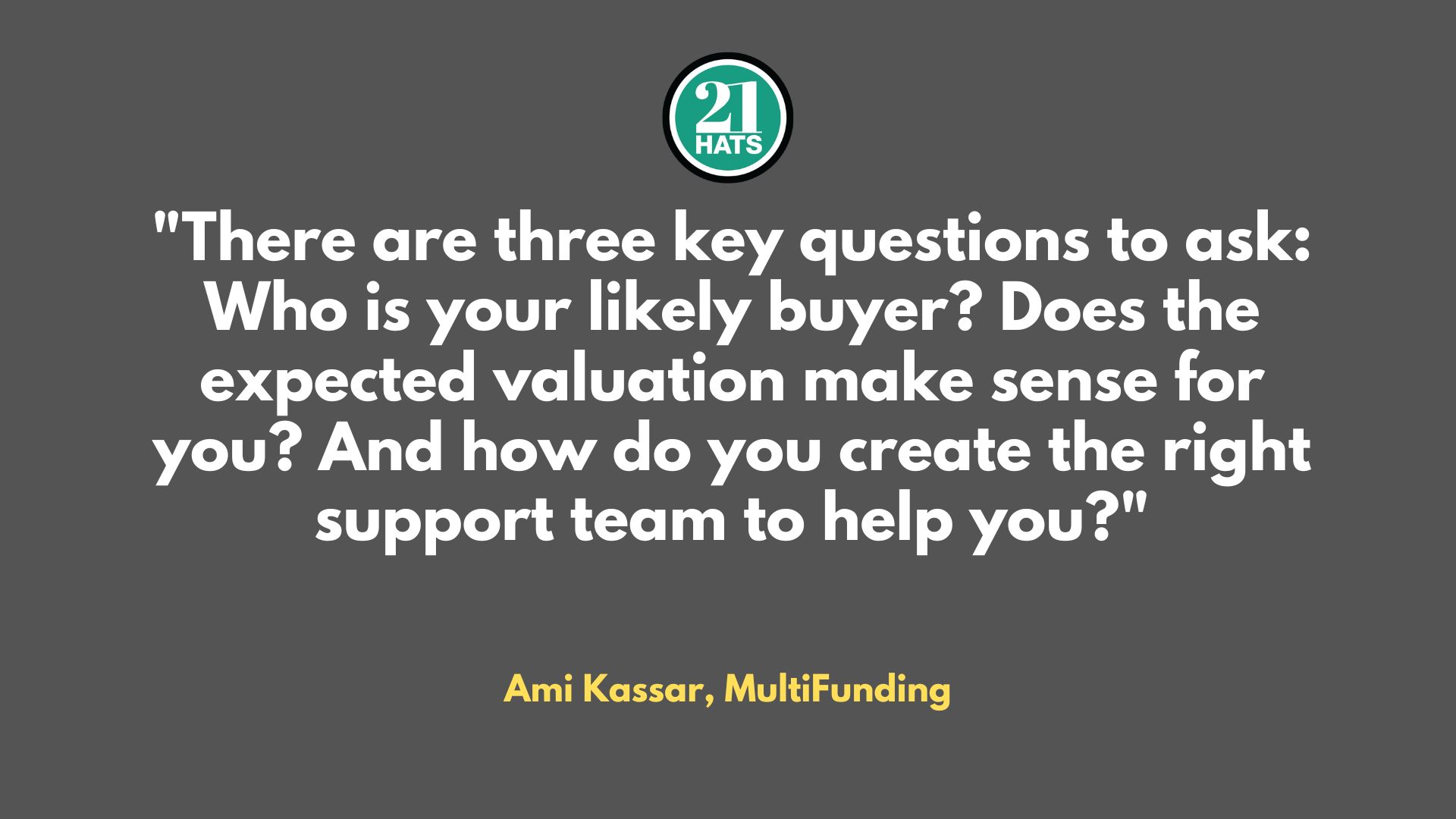Thinking About Selling Your Business?

The process takes time, and it’s never too early to start preparing.
By Ami Kassar
Selling a business can be the most financially rewarding event for an entrepreneur, often a once-in-a-lifetime opportunity. Over the past few years, our work at Multifunding has been focused on assisting entrepreneurs in securing financing for business acquisitions. Through this process, we’ve gained invaluable insights into the buy and sell sides, understanding what leads to success and what pitfalls to avoid. I’m excited to share these insights in a series of columns.
Selling a business is like working your way through a maze. In most cases, the process is complex, with many twists and turns and some false starts. It helps if you can prepare yourself and put the right support team around you. Start by taking a cold shower. You will need the wake-up jolt and clarity on what you are trying to accomplish.
Many entrepreneurs receive cold calls or emails from search funds or private equity firms looking to buy their businesses. I strongly advise against rushing down this path. If you do, the potential buyers have you exactly where they want you—in a non-competitive situation and feeling like they are in control. Selling should be a competitive process. The process will take time, and the devil is in the details.
There are three key questions to ask: Who is your likely buyer? Does the expected valuation make sense for you? And how do you create the right support team to help you?
Some businesses are attractive to strategic buyers because what they do makes a lot of sense as a piece of a larger puzzle. Other businesses are on the target list of private equity firms or search firms because these investors feel they can use their expertise to scale your business faster than you can. And other businesses are attractive to an individual looking to buy and operate a business. This buyer could be someone you have never met, or it could be critical employees or family members who would like to take over.
While strategic buyers or private equity firms are often prepared to pay more than individuals will pay, most companies are purchased by individuals. Of course, much of this depends on the type of business you have built and the current market. You should speak with professional advisors to try to gauge what type of buyer is likely to buy your business and how much they are likely to pay. This step is crucial, because you need to know whether your expectations will meet reality. If you want to sell your house and Zillow tells you it’s worth $1 million, it’s probably worth between $900,000 and $1.1 million. But you can be pretty confident it’s not worth $10 million. The same principle applies to selling a business.
You should work with your financial advisor to determine what number makes sense for you considering whatever your post-sale plans might be. You want to know how much hard cash you will receive at the closing table, which means accounting for how much Uncle Sam will take. If this bottom-line number is close to your likely business valuation and to your own expectations, it could be an excellent time to go to the market. If you are far off, it might be time to focus on building value in your business.
In my next column, we will dig into how to build your support team and the steps you need to take to prepare for the sales process.
Ami Kassar is CEO of MultiFunding.